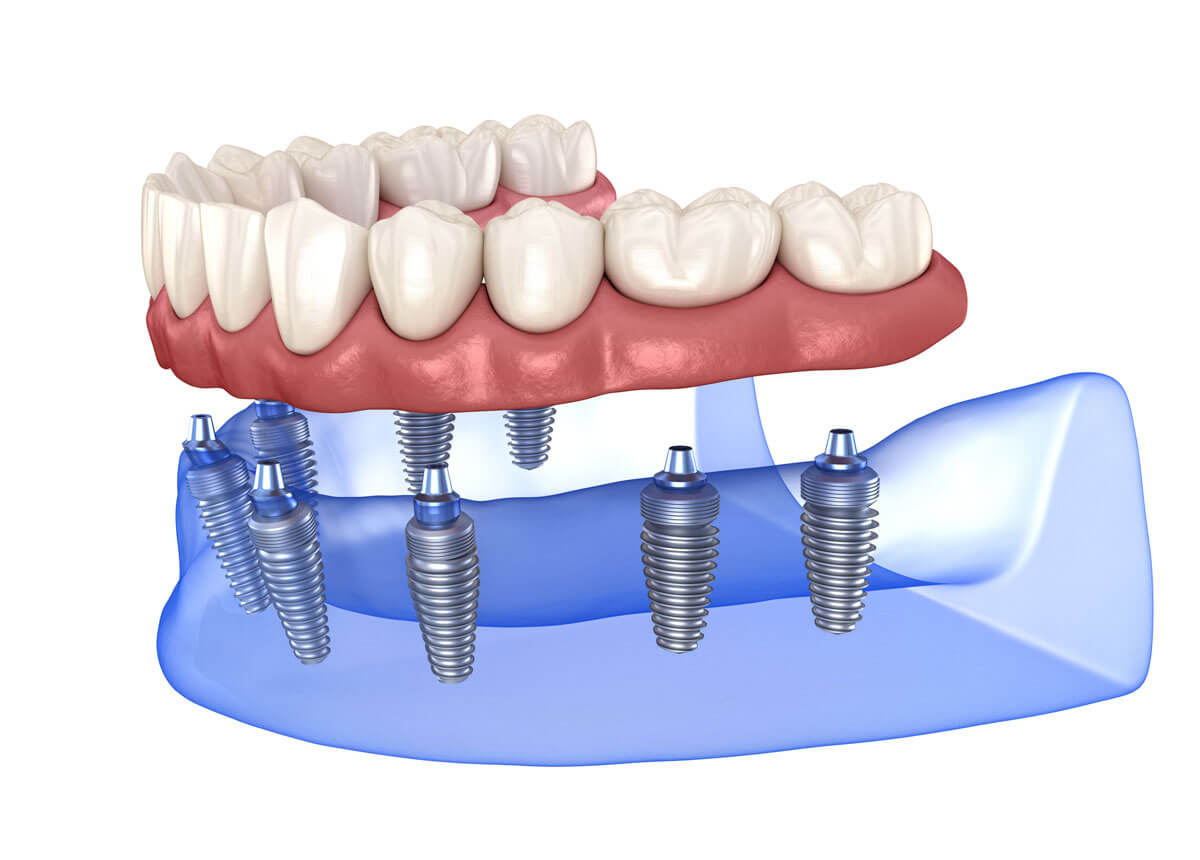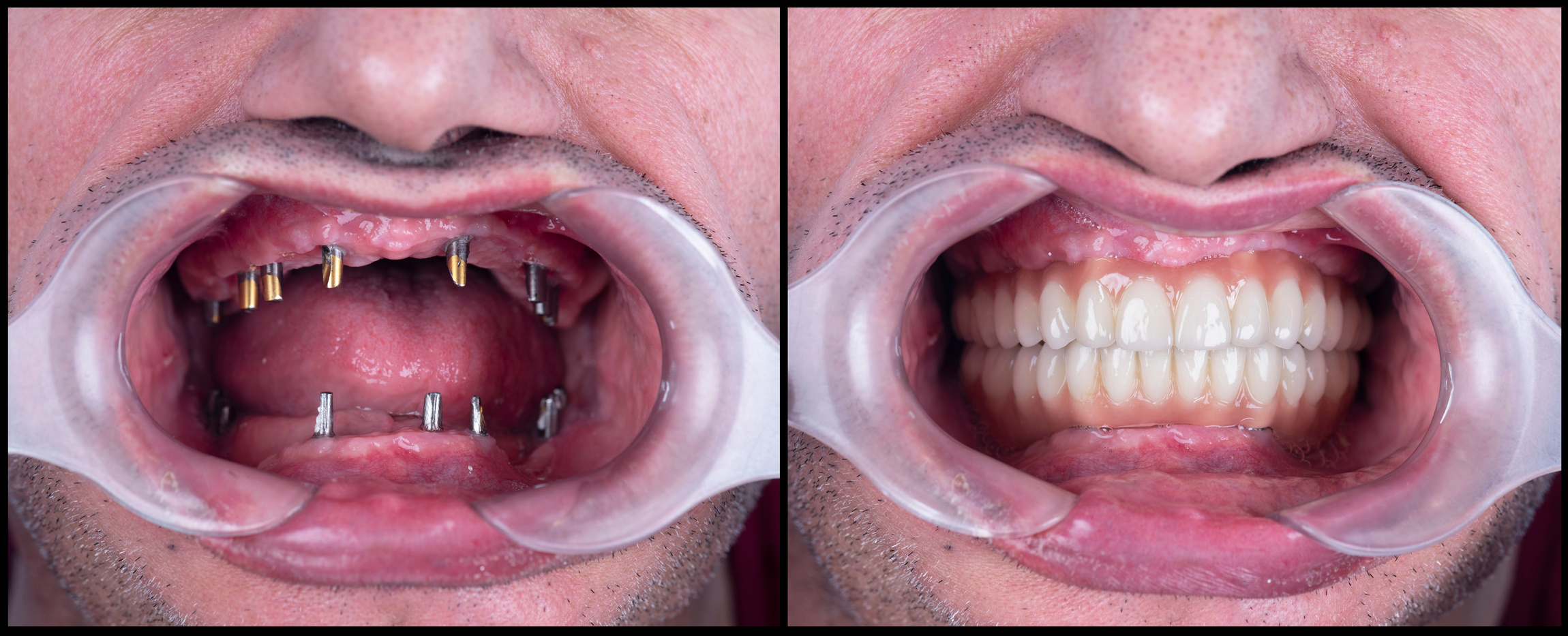An Unbiased View of Dental Sense
An Unbiased View of Dental Sense
Blog Article
Some Known Questions About Dental Sense.
Table of ContentsIndicators on Dental Sense You Should Know5 Simple Techniques For Dental SenseThe 5-Second Trick For Dental SenseNot known Details About Dental Sense
are medical devices surgically implanted into the jaw to bring back a person's capacity to chew or their look. They supply assistance for artificial (fake) teeth, such as crowns, bridges, or dentures. When a tooth is shed because of injury or illness, a person can experience difficulties such as quick bone loss, defective speech, or modifications to eating patterns that lead to discomfort.Dental dental implant systems contain an oral implant body and dental implant abutment and may additionally include an abutment addiction screw. Root canal procedure. The dental implant body is operatively placed in the jawbone instead of the tooth's root. The oral implant joint is typically connected to the dental implant body by the joint fixation screw and extends through periodontals right into the mouth to support the connected man-made teeth
(https://trello.com/w/dentalsense11/members)Framework of The Dental Implant System selecting oral implants, talk with your oral provider regarding the potential advantages and risks, and whether you are a prospect for the treatment. Things to consider: Your general health and wellness is a vital consider establishing whether you are a great candidate for oral implants, the length of time it will certainly require to recover, and how much time the implant might stay in place.
Smoking cigarettes might impact the recovery process and decrease the long-term success of the implant. The healing process for the implant body may take numerous months or longer, throughout which time you typically have a temporary joint instead of the tooth. the oral implant treatment: Very carefully adhere to the dental health guidelines offered to you by your dental supplier.
All About Dental Sense
Implant failure can lead to the requirement for one more surgery to fix or change the dental implant system. Restores the ability to chew Restores cosmetic look Helps maintain the jawbone from reducing because of bone loss Preserves the wellness of the bordering bone and gum tissues Aids keep surrounding (nearby) teeth stable Improves high quality of life Damage to bordering natural teeth throughout implant placement Injury to the surrounding tissues during surgical procedure, such as sinus opening Injury throughout surgery (for instance, fracture of surrounding jawbone) Inadequate feature, such as seeming like the teeth do not attack with each other generally An experience that the tooth is loosened or turning in place resulting from an abutment screw loosening Implant body failure (looseness of the dental implant body) as a result of systemic infection, which might be most likely in individuals with unchecked diabetes due to regional infection in Clicking Here bone and gum tissues sustaining the dental implant body as a result of postponed recovery, which may be much more most likely in clients that smoke Problem cleaning up the gum tissues around the implant, leading to bad oral hygiene Neglected gum illness Post-surgical feeling numb as a result of nerve impingement or damage Constantly notify wellness treatment companies and imaging technicians that you have dental implants prior to any kind of magnetic resonance imaging (MRI) or x-ray procedures.
FDA is not knowledgeable about any type of negative occasions reported for MRI or x-ray treatments with dental implants. Dental implants systems are generally constructed from products that follow worldwide consensus criteria of the International Company for Standardization (ISO) or ASTM International. These requirements have details of what makes a safe material.

An oral implant is a structure that changes a missing tooth. With screw-like tools, the doctor inserts an implant right into the jawbone, and it acts as a support for an artificial tooth, called a crown.
More About Dental Sense
Some people are not qualified for dental implant surgical procedure. It is for dental specialists to run on individuals with: acute illnessuncontrollable metabolic diseasebone or soft cells illness or infectionIf these issues are dealt with, a person can have the surgery. In, dental specialists avoid operating people with: If people with any one of the above undertake oral implant surgical treatment, there is a greater threat of the implant failing.

Dental implant surgical treatment is a personalized process. Provide you time to recover. Attach the post and final crown, bridge or denture.
Next, your surgeon will meticulously position the oral implant into your jaw. If your implant is near the front of your mouth, your dentist will make a short-lived tooth for you to put on up until you heal.
How Dental Sense can Save You Time, Stress, and Money.
Your company can tell you what to anticipate in your situation. During the recovery stage, your jawbone ought to fuse to the oral implant. This procedure, called osseointegration, is crucial for stability and long-term success. This procedure can take anywhere from three to 9 months. Sometimes, it might take much longer.
When your dental implant heals, your dental professional can attach the abutment (little adapter blog post) and your final remediation (crown, bridge or denture). This normally takes about one hour to finish and may require a second minor surgical procedure. You shouldn't really feel any pain during your dental implant treatment due to the fact that your supplier will certainly make use of medicine to numb your periodontals.
Report this page